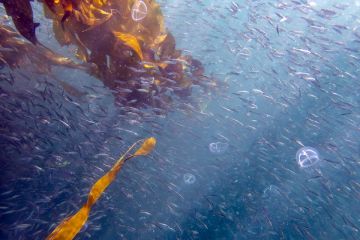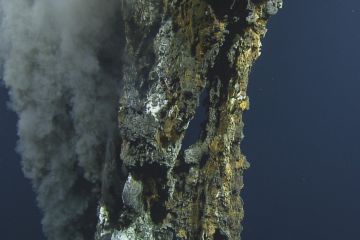New tool measures environmental impact of fish farming
Despite the many challenges facing salmon aquaculture in Canada, its environmental record gets a passing grade compared to salmon farming activities in other parts of the world.
So says Dr. John Volpe, a marine ecologist in UVic's School of Environmental Studies, who along with his research team has developed the Global Aquaculture Performance Index (GAPI) as a way to measure objectively the environmental performance of fish farming around the world.
GAPI assesses the performance of marine fish farming in 22 countries—which represent 94 per cent of global production—using 10 indicators of environmental performance, including sustainability of feed, use of antibiotics, impacts of pathogens, and fish escape.
The researchers examined the environmental impact of marine fish farming per tonne of fish produced and the cumulative environmental impact for each country producing a major farmed species.
In general, they found that fish aquaculture in such countries as Iceland, France and New Zealand is more environmentally friendly than in China and other Asian countries where the industry is young and growing rapidly.
"In Asia, we found a troubling combination of poor environmental performance and rapidly increasing production," says Volpe, who observes that industrial-scale production tends to magnify environmental degradation.
"Scale is critical," he says. "Over time, the industry has made strides in reducing the environmental impact per tonne of fish, but this does not give a complete picture. Large-scale farming of salmon, for example, even under the best current practices, creates large-scale problems."
Canada ranked fifth-lowest in environmental impact per tonne of fish produced. But it fell to 12th in cumulative impact, reflecting the relatively large scale of the fish-farming industry in this country.
Of the four major salmon aquaculture nations (which account for 93 per cent of the world's farmed salmon production), Canada was ranked third, behind Norway and the UK.
"This tells us that, on average, salmon aquaculture in Canada is doing well relative to the rest of the world," says Volpe. "But this is nothing to celebrate. It just tells us how low the bar is in the rest of the world."
GAPI is a work in progress and is intended to aid government policy-makers, producers and seafood buyers. It was developed with support from the Lensfest Ocean Program.
More information: www.gapi.ca




